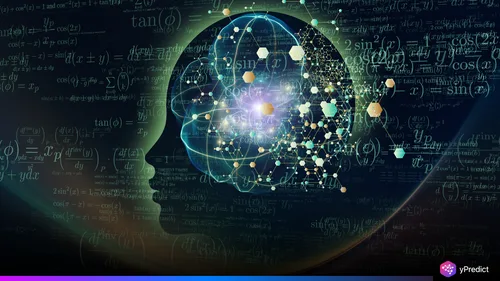
AI, biotech, and energy innovation have begun to rewrite the playbook for global growth. Just a few years ago, many predicted major breakthroughs in these sectors with visions of possibilities taking decades. Instead, we are seeing change at a pace that is almost too quick to register. We are witnessing world-class health and well-being biotech innovations, AI optimizations driving productivity and continuous learning, and energy innovations that tackle the climate crisis on an unprecedented scale, all developments that the most optimistic experts would not have predicted happening so quickly.
This rapid transformation is occurring not just in labs or tech nodes, but transforming how companies compete, how nations compete and how societies get ready for what’s next. Globally, investors, policy makers and firms are now waking up to the reality that the future competitive positioning of global industries will be based upon how they plug into and adapt to this technology as rapidly as they can.Something that appears implausible one moment starts to take over and influence the decisions we make the next.
The confluences of AI, biotech, energy are creating a turbo-charger ecosystem: AI is turbocharging some of the world’s most exciting progress in biotechnology; biotech is doing the fundamentals of health and agriculture; and clean energy is making daily progress cleaner and more sustainable. They represent the greatest transformation the modern world has ever witnessed.
How AI Is Redefining Human Potential
Artificial intelligence is no longer only a specialized application it now has global ramifications for productivity, creativity, and decision making. Businesses are now using AI to optimize supply chains, discover new drugs, and customize experiences for consumers. AI also has rapidly become a part of critical infrastructure and is now both an economic and security driver.
The emergence of generative AI has disrupted industries ranging from media to software, but its true value extends beyond media hype. We see real value in AI’s ability to accelerate the rate of innovation. AI biotech and energy innovation are deeply interrelated. AI algorithms accelerate the discovery of new medicines, but also inform the design of energy-efficient systems. This technological revolution is expanding cards at a pace the world has not known.
Biotech Is Reshaping Health, Food, and Sustainability
The biotech revolution is one of the most important drivers of change today. Scientists are able to engineer crops to withstand the climate crisis, create personalized medicine for complex diseases, and use biotechnology to generate sustainable materials. What was unimaginable only decades ago is now about public health and the security of economic systems.
Innovations in gene editing, diagnostics, and vaccines have demonstrated a potential for biotech to offer solutions at record speed. For example, the COVID-19 pandemic offered a clear demonstration of value that is possible with rapid development in biotech and since that time, really only the speed of discoveries in biotech has increased. With the application of AI, the amount of biotech innovation is accelerating the rate of discovery and moving years of work into months. Both public health and international industries depend on resilience, adaptability, and innovation. The biotech revolution is a major part of that innovation.
Clean Energy Powers the Next Growth Cycle
Energy underpins every economy, and the transformation in energy is reshaping the competition landscape around the globe. The rapid development of solar, wind, and battery technologies is lowering costs and increasing viability, while around the world new clean hydrogen technologies, advanced grids, and incredible innovation in nuclear energy are developing additional impetus.
With AI in biotech and energy, sustainable progress feeds on each other’s growth. AI technologies optimize renewable energy grids; biotech improves biofuels; and developing new classes of materials contributes to better energy storage systems. While there is no doubt that economizing the production of energy is an important part of the progress required towards energy transition, this set of energizing developments demonstrates that energy progress is not only about reducing disclosed emissions but also raising future revenues and economic prospects. The advancement of global industries rests upon cost effective, affordable, and resilient energy systems together with the provision of economic opportunities.
Why This Matters for Business and Society
We are at the threshold of an age in which industries can no longer control the flow of change. Companies that will position themselves with these changes in AI biotech and energy innovations, will thrive in the new market, while companies that try to maneuver through avoiding them will fall behind. For governments, there are opportunities and challenges with this wave of change. Policy decisions must be made to promote research, while simultaneously having ethical boundaries and access.
For people, these are all going to be changes that will produce longer lifespans, better health care and healthy lifestyles along with smarter services. However, the change will also bring disruption to the workforce, security of one’s data, and rethinking our balance between innovation and responsibility. The social and environmental reality brings uncertainties into an exciting future of global industries that will have to be traversed with care.
The Road Ahead
We are entering an era where boundaries between disciplines will fade away. AI drives biotech, biotech drives energy, and energy drives technological global systems. This amalgamation is a story of science and also a story of society, a story of economics, and a story of human ambition.
AI biotech and energy innovation are defining the future, and the pace will only increase. The challenge is not to resist change, but rather be responsible for enacting change. Businesses, governments, and individuals alike must prepare for a new reality possibility, one where evolution is the only constant.






